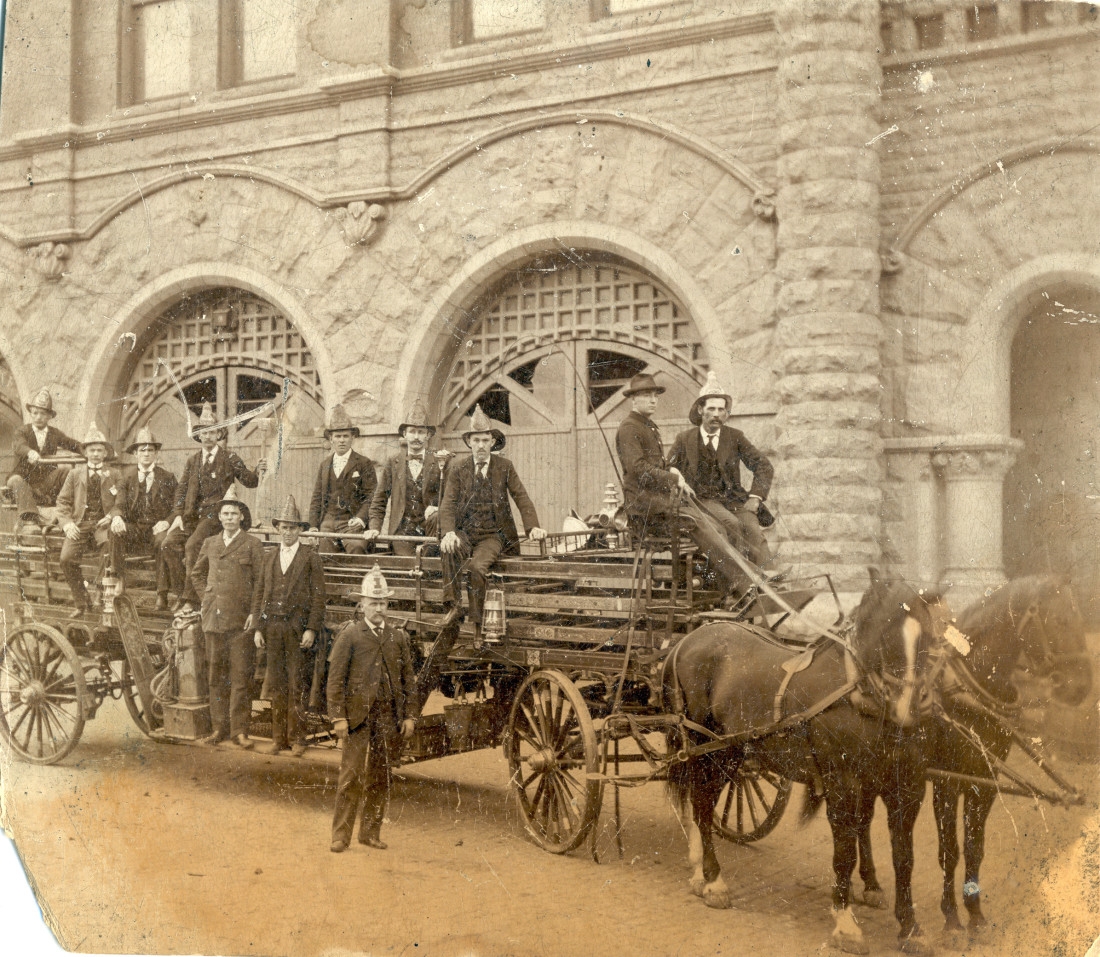The 1998 fire that nearly consumed the Old Kentucky Home, the boardinghouse and childhood residence of Asheville writer Thomas Wolfe [see “O (Almost) Lost,” July 25, Xpress], is just one of many blazes that has sparked fear in the city. Other tragedies include the 1917 fire at Catholic Hill School, which resulted in the death of seven students [see “Tuesday History: Catholic Hill School and the fire of 1917,” Feb. 28, 2017, Xpress], the 1923 fire at the former Emporium Department Store at South Pack Square and the 1948 fire at Highland Hospital, which claimed nine lives, including that of Zelda Fitzgerald [see “Tuesday History: The fire at Highland Hospital,” March 21, 2017, Xpress].
The Asheville Fire Department responded to each of these cases with varying degrees of success. But before the department’s formation in the spring of 1882, residents and business owners had only themselves and their neighbors to rely on.
Such realities and threats created great consternation. On Feb. 4, 1858, the Asheville News included an article noting several instances where citizens were aroused from sleep by the startling cries of “fire!” In each case, the writer attributed the community’s prompt, collective response and favorable weather for the avoidance of complete catastrophe. Nevertheless, these near-disasters led the writer to ask, “What means have we for meeting and successfully resisting a calamity of this sort, once it obtains fair headway? The answer is short: just none at all!”
The article went on to declare that Asheville — then a town of 1,500 — risked everything in the absence of “fire engine, ladder, hook or bucket[.]” The writer then reminded readers that over the previous 14 years conversations were had on the matter, but without resolution. “[U]nfortunately it is everybody’s business, and of course nobody’s,” the article asserted. “[B]ut when the destroying angel visits you in its strength and fury, (which God forfend!) do not say that you were never warned of the danger.”
The admonition would be ignored for decades. But awareness of potential disaster continued to surface in headlines and articles. On Feb. 4, 1875, the North Carolina Citizen reported on a recent publication by the Engineering Journal, which offered a list of common causes for fire. Carelessness, the newspaper concluded, was the driving force behind most flames.
By 1882, envy and trepidation made its way onto the pages of The Asheville Citizen. The paper’s April 5 edition stated:
“Our little neighbor Hendersonville has just organized and equipped a Hook and Ladder company; Winston is beginning to utilize her newly constructed water works; Wilmington, immediately on the river, draws largely and beneficially on her new supplies; the water works of Charlotte are finished; most of the towns in the State are moving for good drinking water and for protection against fire. Asheville as yet shows no signs of these things. Are we able to be without them?”
Residents would quickly discover the answer was a resounding no when, nine days later, a fire broke out, destroying one property and threatening several others. The devastation created a new urgency within the community.
On April 15, 1882, the day after the fire, The Asheville Citizen declared:
“The fact was demonstrated the other night that the houses of Asheville are not fire proof; that they are not incombustible; and that they are liable to the same casualties to which the property of other communities are subjected. The people of this community have lived in the happy elusion that they are under the special guardianship of a kindly Providence who has relieved them from all responsibility to watch over their own affairs; and modestly assume that for their sakes He will suspend the laws of nature, chill the spark that elsewhere flashes with flames, and chain the wind that fans into wild conflagration.”
The article decried any further inaction as criminal. The fire, it insisted, proved not only the city’s vulnerability to flames, but also its “absolutely helpless and unprepared condition … to meet such contingency.”
According to Asheville Fire Department engineer and historian, Brian Lawrence, the department officially formed on May 2, 1882. On June 3, 1882, The Asheville Citizen featured the latest ordinances passed by Board of Aldermen. This would included nine new sections with guidelines and requirements on fire safety.
Later that year, on Nov. 14, The Asheville Citizen informed its readers that a surprise arrived that Thursday “when a company of stalwart men dragged into the public square with rattle of wheels and jingle of bells, a handsome new hook and ladder truck, for the use of the company formed last spring.”
Editor’s note: Peculiarities of spelling and punctuation are preserved from the original documents.



Before you comment
The comments section is here to provide a platform for civil dialogue on the issues we face together as a local community. Xpress is committed to offering this platform for all voices, but when the tone of the discussion gets nasty or strays off topic, we believe many people choose not to participate. Xpress editors are determined to moderate comments to ensure a constructive interchange is maintained. All comments judged not to be in keeping with the spirit of civil discourse will be removed and repeat violators will be banned. See here for our terms of service. Thank you for being part of this effort to promote respectful discussion.